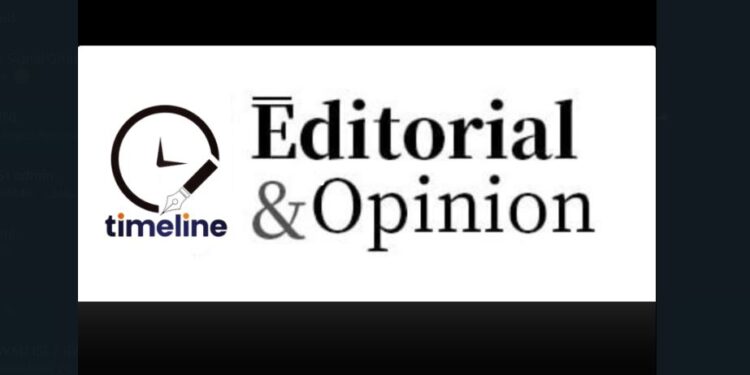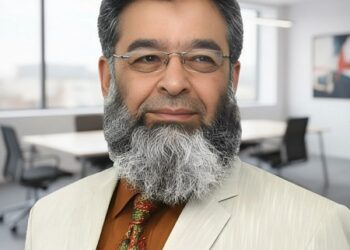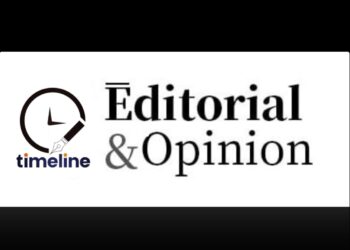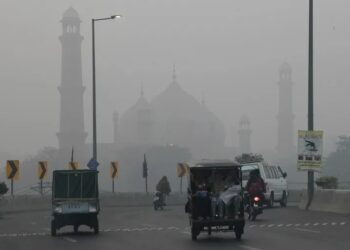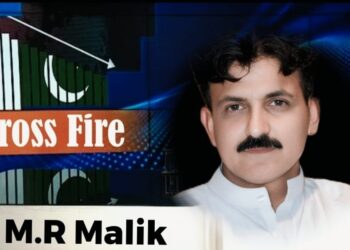Written: Abdul Basit Alvi
In democratic societies, the right to peaceful protest is a cornerstone of civil liberties. It enables individuals to voice their opinions, advocate for change, and hold those in power accountable.
The history of peaceful protest is profound. From the civil rights movement in the U.S. to anti-apartheid demonstrations in South Africa, nonviolent protests have been crucial in challenging injustice and driving social change. These movements underscore the effectiveness of collective action in the fight for rights. The Universal Declaration of Human Rights, adopted by the United Nations in 1948, affirms in Article 20 that everyone has the right to peaceful assembly and association, highlighting the vital role of peaceful protest in advancing social justice and equality.
Peaceful protests offer a platform for individuals to express concerns regarding government policies, social injustices, and environmental issues, which is essential for a vibrant democracy. Such expressions encourage active citizen participation in the political process. Protests also cultivate a sense of solidarity among participants, helping to create communities centered on shared values and objectives. This collective action can enhance social bonds and inspire further civic engagement.
Additionally, peaceful protests act as a check on government power, reminding authorities that their legitimacy stems from the consent of the governed. The right to peaceful protest is recognized in various international human rights frameworks and protected by laws in many countries. However, the specifics of legislation governing peaceful protests differ widely, influenced by varying political climates, cultural contexts, and historical backgrounds.
In the U.S., the First Amendment guarantees the right to freedom of speech, assembly, and petition, allowing for peaceful protests. States have laws regulating the time, place, and manner of protests, including permitting requirements for large gatherings.
In the UK, the right to peaceful assembly is recognized under the Human Rights Act 1998, which incorporates the European Convention on Human Rights into domestic law. The Public Order Act 1986 governs protests, permitting authorities to impose conditions to maintain order.
In Pakistan, the right to peaceful assembly is also constitutionally guaranteed, but the dynamics surrounding protests often create complex legal and social challenges. The legislation governing protests is intertwined with broader political contexts and security concerns. Article 16 of the Constitution states, “Every citizen shall have the right to assemble peacefully and without arms, subject to any reasonable restrictions imposed by law in the interest of public order or security of the State.” This underscores the significance of peaceful protests as a vital aspect of democratic expression. The Maintenance of Public Order Ordinance (MPO) of 1960 empowers authorities to impose restrictions on assemblies that may disturb public peace. Additionally, the Penal Code addresses offenses related to public disturbances and rioting, and the application of these laws can result in harsh penalties for protesters, especially if violence occurs. The Anti-Terrorism Act (ATA) of 1997 is often invoked in cases where protests escalate into violence, allowing for severe measures against those accused of inciting or participating in violent acts. Provinces, such as Sindh and Punjab, also have their own regulations governing public gatherings, requiring prior permission for protests.
In any democratic society, the relationship between politicians and the public is built on trust. Fairness and honesty are essential virtues that underpin this trust, shaping the integrity of political systems and the health of democratic governance. As representatives of the people, politicians have a responsibility to uphold these values, ensuring that their actions align with the needs and expectations of their constituents. Building public confidence in political leaders and institutions relies heavily on fairness and honesty. When politicians are open about their intentions, policies, and decision-making processes, they create an atmosphere of trust. This trust fosters greater civic engagement, as citizens are more likely to participate in the political process when they believe their voices are acknowledged and respected. Transparency promotes accountability; politicians who are forthcoming about their actions and decisions are more likely to be held accountable for their performance. This accountability applies not only to elected officials but also to government institutions, encouraging a culture where ethical behavior is expected and rewarded. When citizens feel empowered to demand accountability, they help build a more responsive and effective political system. Conversely, when politicians engage in dishonest practices like misinformation, manipulation, or corruption, they erode public trust. This erosion of trust can result in widespread disillusionment with the political process, discouraging voter participation and civic engagement. In extreme cases, a lack of trust may lead to political apathy or radicalization, as citizens lose faith in traditional political structures. Dishonesty often exacerbates societal divisions. Politicians who use divisive rhetoric or deceptive tactics can intensify polarization, pitting different groups against each other. This not only obstructs constructive dialogue but also complicates the search for common ground on critical issues, resulting in gridlock and ineffective governance.
On the other hand, politicians who prioritize fairness and honesty contribute to more effective governance. Transparent communication and equitable treatment of all constituents facilitate informed decision-making that reflects the community’s needs. When politicians actively listen to diverse perspectives and act with integrity, they can develop policies that promote social cohesion and address pressing challenges. Fairness and honesty also help establish long-term relationships between politicians and their constituents. When voters feel that their leaders genuinely care about their well-being and are truthful, they are more likely to support them, even during difficult times. This loyalty can foster political stability and encourage a more engaged citizenry.
Protests are often viewed as a powerful expression of public dissent and a crucial tool for social change. However, the motivations behind these movements can be complex and may sometimes stem from hidden agendas of leaders or groups. Hidden agendas refer to undisclosed motivations or objectives that leaders might have when organizing or supporting protests. These can include political gain, personal interests, or ideological goals that may not align with the protest’s stated aims. While many protests arise from genuine grievances, the involvement of leaders with ulterior motives can complicate matters significantly.
Leaders with hidden agendas can manipulate public sentiment to serve their interests. By co-opting authentic movements, they may shift the focus away from the core issues that initially sparked the protests. This manipulation often results in a diluted message, where the original demands of protesters are overshadowed by the leaders’ goals. Consequently, the public may feel disillusioned, sensing that their voices have been hijacked. When the true motivations behind a protest come to light, it can lead to a significant erosion of trust in both the leaders and the movement itself. Citizens may feel betrayed if they believe they have been used as pawns in a larger game. This loss of trust can have long-lasting effects, making individuals more skeptical of future protests and less inclined to engage in civic activities. Additionally, hidden agendas can create fragmentation within protest movements; competing interests among different factions can lead to infighting and a lack of cohesive direction. This fragmentation not only undermines the movement’s effectiveness but also creates a confusing narrative for the public and media, making it challenging to communicate a unified message. Protests often seek to influence policy changes, but when leaders with hidden agendas shape these movements, the resulting discussions may focus on issues that serve their interests rather than the genuine needs of the community. This misalignment can lead to ineffective or misguided policies that fail to tackle the root causes of grievances. When hidden agendas are revealed, they can further deepen societal polarization. Citizens may align themselves with opposing narratives, resulting in a divided populace where mistrust and animosity flourish. This polarization can hinder constructive dialogue and make it difficult to reach consensus on important social issues. The revelation of hidden agendas can create a chilling effect on genuine activism, as potential activists may hesitate to join movements for fear of being linked to leaders with ulterior motives. This reluctance can stifle grassroots initiatives and limit the emergence of authentic voices advocating for change.
Protests have long played a crucial role in political expression in Pakistan, providing citizens a platform to voice their grievances and demand change. However, many protests are often underpinned by a complex web of hidden agendas orchestrated by political leaders. Pakistan’s political landscape has a rich history of activism, with protests frequently arising in response to economic hardship, political corruption, and social injustices. Yet, the involvement of leaders with ulterior motives can complicate the true intentions behind these movements.
Political power struggles often drive protests in Pakistan, where leaders may exploit public discontent to undermine rivals or distract from their own failures. For example, protests initially focused on issues like inflation or governance can quickly become platforms for political rivalry. This manipulation tends to shift the narrative, diverting attention from genuine grievances to political maneuvering. In the lead-up to elections, protests may be strategically organized or supported by political parties to rally support. Politicians might exploit social issues to mobilize specific voter bases, framing protests as efforts to champion the rights of marginalized groups. However, once the electoral goal is achieved, their commitment to these issues may diminish, leading to disillusionment among the constituents who initially rallied for change.
The exposure of hidden agendas can significantly erode trust in both political leaders and protest movements. When citizens feel their participation has been manipulated for political gain, disillusionment can ensue. This erosion of trust has long-lasting implications, making individuals less likely to engage in future protests or civic activities. When politicians are seen as using protests for their own benefit, it fosters a sense of betrayal among the public. Citizens may feel their genuine concerns have been overshadowed by political posturing, resulting in apathy and skepticism toward political institutions. This disillusionment can create a cycle where citizens disengage from the political process, further entrenching the very issues they sought to address.
Hidden agendas can also fragment protest movements. When different factions within a movement pursue conflicting objectives, it can lead to internal conflict and weaken the overall impact. For instance, protests against government policies may splinter into rival groups, each with its own political agenda, diminishing the effectiveness of the movement as a whole. Protests in Pakistan often aim to influence policy decisions. However, when driven by hidden political agendas, the resulting discussions may overlook the true needs of the population. Politicians might prioritize their own interests over those of citizens, leading to ineffective policies that fail to address underlying issues. The involvement of politicians with ulterior motives can further exacerbate societal polarization, as leaders use protests to promote their own narratives, deepening divisions within society. This polarization can hinder constructive dialogue and make it more difficult to find common ground on pressing issues. Protests have long been a vital form of political expression in Pakistan, often reflecting public discontent with government policies, economic conditions, or social injustices. However, these movements are sometimes co-opted by political leaders with hidden agendas.
The Lawyers’ Movement, for example, was initiated to restore the judiciary’s independence, specifically to reinstate Chief Justice Iftikhar Muhammad Chaudhry, who had been dismissed. While the movement garnered widespread support from civil society and legal professionals, it also attracted political figures who saw an opportunity for personal gain. Prominent political leaders aligned themselves with the movement, often using their support as a way to undermine government and consolidate their own power. Once the judiciary was restored, these leaders shifted their focus to their political agendas, raising doubts about their commitment to judicial independence.
In 2014, Pakistan Tehreek-e-Insaf (PTI), led by Imran Khan, organized the Azadi March to demand the resignation of Prime Minister Nawaz Sharif, alleging electoral fraud in the 2013 general elections. Imran Khan’s agenda extended beyond addressing electoral malpractice; it aimed to position him as a viable alternative to the established political elite. The prolonged nature of the protest and its associated disruptions suggested a strategic effort to weaken Nawaz Sharif’s government and enhance Khan’s political stature. Ultimately, this protest not only highlighted Khan’s ambitions but also shifted focus from the initial grievances.
In 2021, farmers in Punjab protested against rising agricultural input costs and government policies perceived as unfavorable. While their grievances were legitimate, political leaders from various parties attempted to seize the moment. Leaders from opposition parties, including the PPP and the PML-N, aligned themselves with the farmers to demonstrate solidarity. However, critics argued that their involvement was less about supporting farmers and more about undermining government, reflecting their own political motivations. This opportunism detracted from the core issues, as the narrative shifted toward political rivalry rather than addressing the farmers’ needs.
In 2022, Pakistan Awami Tehreek (PAT) organized a Long March demanding justice for victims of the Model Town incident in 2014. Leaders from various opposition parties joined forces with PAT, which was viewed as a strategic effort to discredit the ruling government. Critics claimed that the focus on the Model Town incident was overshadowed by broader political objectives, raising concerns about the sincerity of the protest. More recently, the violent protests and repeated calls for demonstrations by the Awami Action Committee in AJK also appear aimed at fostering negativity and hate. The Awami Action Committee has transformed into a pressure group focused more on political interests than on representing public concerns. Its agenda appears self-centered, emphasizing personal gain and self-promotion. Reports indicate that one leader of the Awami Action Committee, arrested on charges of robbery, was attempted to be forcibly released by its leadership without going through the proper legal channels. This incident illustrates how the Awami Action Committee seems intent on masking its misdeeds behind a facade of activism. Similarly, the leadership of PTI in Pakistan also seems disconnected from the country’s real issues and the needs of its citizens. They are desperate to gain power by any means, showing little concern for the harm they may cause to the country in pursuit of their selfish goals. PTI’s first sit-in in 2014 aimed to disrupt the visit of the Chinese president to Pakistan, while more recently, they planned to attack Islamabad during the SCO Summit, diverting attention from the significance of this event for Pakistan. The SCO is a crucial forum for international cooperation and a platform to raise awareness about the Kashmir issue globally. By choosing to protest during such an important time, they appear to align themselves with the agendas of those opposed to Pakistan, potentially undermining the Kashmir liberation movement.
The Shanghai Cooperation Organization (SCO), established in 2001, focuses on political, economic, and security cooperation in the Eurasian region. Pakistan became a full member in 2017, making the SCO a vital platform for Islamabad, offering numerous opportunities. Membership strengthens Pakistan’s ties with key regional players like China, Russia, and Central Asian nations, which is crucial for countering Western influence.
By engaging with the SCO, Pakistan can align more closely with countries that share its strategic interests, enhancing its diplomatic leverage. The SCO promotes regional connectivity through initiatives like the China-Pakistan Economic Corridor (CPEC) and the broader Belt and Road Initiative (BRI), which improve infrastructure and trade routes, facilitating economic integration and establishing Pakistan as a regional hub for trade and investment.
Engagement with the SCO allows Pakistan to balance its relationships with major powers like China and Russia while maintaining strategic autonomy. This multilateral approach can help Islamabad navigate complex geopolitical challenges. The SCO’s emphasis on economic cooperation can enhance trade relations among member states, providing Pakistan with access to new markets and investment opportunities, especially in agriculture, energy, and technology. By fostering economic ties within the SCO framework, Pakistan can diversify its trade partnerships and reduce reliance on traditional markets, engaging in initiatives that promote collaboration across various sectors. Increased cooperation in areas like energy resources, transportation, and infrastructure development can foster greater economic stability and growth for Pakistan and its neighboring countries. The SCO can act as a platform for Pakistan to engage in development projects with other member states. Collaborative initiatives in fields such as water management, agriculture, and technology transfer can bolster Pakistan’s capacity for sustainable development and enhance the living standards of its citizens.
A key objective of the SCO is to promote regional security and combat terrorism. For Pakistan, which has faced significant challenges related to extremism and terrorism, participation in the SCO offers an opportunity to collaborate with member states on intelligence sharing, counter-terrorism operations, and the adoption of best practices in security governance. The SCO has shown a strong interest in the situation in Afghanistan, especially following the Taliban’s return to power. Pakistan’s participation in the SCO can enhance its role as a mediator in Afghan affairs, promoting stability in the region. A stable Afghanistan is crucial for Pakistan’s own security and economic interests, making SCO membership particularly significant. The SCO focuses on cooperative security mechanisms and peacekeeping initiatives, allowing Pakistan to contribute to and benefit from collective efforts to maintain regional peace and stability while addressing shared threats.
This SCO summit was especially important for Pakistan—not only because it was hosted by the country, but also due to the current challenges Pakistan faces. The financial crises and terrorism issues are critical concerns that require international cooperation. Those who impose restrictions on securing such international support for Pakistan cannot genuinely be considered its well-wishers.
A major problem in Pakistan is that some leaders exploit the populace as “human shields.” In the political arena, the ethical responsibilities of leaders are paramount. Unfortunately, some politicians resort to manipulative tactics, using their constituents as shields to deflect attention from their own wrongdoing. The term “human shield” traditionally refers to using civilians to protect military targets from attack. In a political context, it describes the tactic of placing vulnerable communities in precarious situations to deter criticism or scrutiny.
By leveraging these groups, politicians seek to insulate themselves from the repercussions of their actions, often in pursuit of power or personal gain. They exploit social issues—such as poverty, education, or healthcare—by presenting themselves as the sole protectors of these vulnerable populations. For instance, when faced with allegations of corruption or mismanagement, some politicians highlight their community engagement efforts, framing critics as adversaries of public welfare. This tactic effectively diverts attention from their misconduct.
Additionally, some politicians orchestrate protests or public demonstrations, portraying them as grassroots movements. This strategy distracts from their controversial policies or actions. When scrutinized, these leaders often claim that any criticism of their behavior is an attack on the very people who support them, thus positioning themselves as morally superior. In some instances, politicians prioritize the interests of specific groups—such as ethnic or religious minorities—while overlooking the needs of the broader society. This approach fosters a narrative that any criticism of their governance equates to undermining these communities. Such exploitation not only hinders accountability but also deepens societal divisions. When politicians use their constituents as shields, it breeds cynicism and disillusionment among the public. Citizens start to question the motives of their leaders, contributing to a wider erosion of trust in democratic institutions. This lack of trust can lead to disengagement among voters and reduced civic participation, ultimately weakening the foundations of democracy. The tactic of using human shields can effectively suppress accountability. Politicians who manipulate public sentiment to shield themselves from criticism evade scrutiny for their actions, fostering a culture of impunity. This environment allows corruption and unethical behavior to flourish, undermining the principles of good governance. By exploiting vulnerable communities, politicians can deepen social divisions. Portraying dissenters as enemies of the people creates an “us versus them” mentality, further polarizing society. This division complicates dialogue and consensus-building, hindering progress on critical issues.
In any democracy, the relationship between politicians and the electorate is foundational. Citizens place their trust in elected officials to represent their interests, uphold the rule of law, and work toward the common good. However, the ability to distinguish between good and bad politicians is essential for a healthy democratic society. Good politicians are defined by their integrity and honesty. They prioritize transparency in their actions and decisions, keeping constituents informed about their intentions. These leaders take responsibility for their actions and readily admit mistakes. A hallmark of effective leadership is accountability; good politicians hold themselves answerable to their constituents and respond to public needs and concerns. They welcome scrutiny and engage in open dialogue, fostering trust and confidence in their leadership.
Good politicians possess a clear vision for the future and the competence to realize that vision. They understand the complexities of governance and are skilled at navigating challenges. Their policies are well-researched and aim to improve the quality of life for all citizens. Empathy is crucial for effective political leadership; these politicians actively listen to diverse perspectives and strive to represent the interests of marginalized and underrepresented communities. They promote inclusiveness and advocate for policies that benefit all segments of society.
In contrast, bad politicians often prioritize their own interests over the public good. They may engage in corrupt practices, using their positions for personal gain rather than serving their constituents. Such behavior erodes trust in the political system and can lead to widespread disillusionment among voters. Bad politicians frequently resort to divisive tactics, exploiting societal tensions for their advantage. By polarizing the electorate and fostering animosity between groups, they undermine social cohesion and create an environment of fear and distrust. Politicians who evade accountability can undermine democratic processes. They may dismiss criticism, disengage from constituents, and neglect pressing issues. This lack of accountability can lead to systemic problems, including corruption and ineffective governance. Many unscrupulous politicians employ populist rhetoric, making grand promises without concrete plans to deliver on them. While these promises may resonate with voters initially, they often result in disappointment and unmet expectations.
The people of Pakistan and AJK are increasingly discerning between good and bad leaders and are no longer easily deceived. There is a pressing need for strict action against those elements and groups that spread hate and chaos for their own interests and the agendas of our adversaries.
















